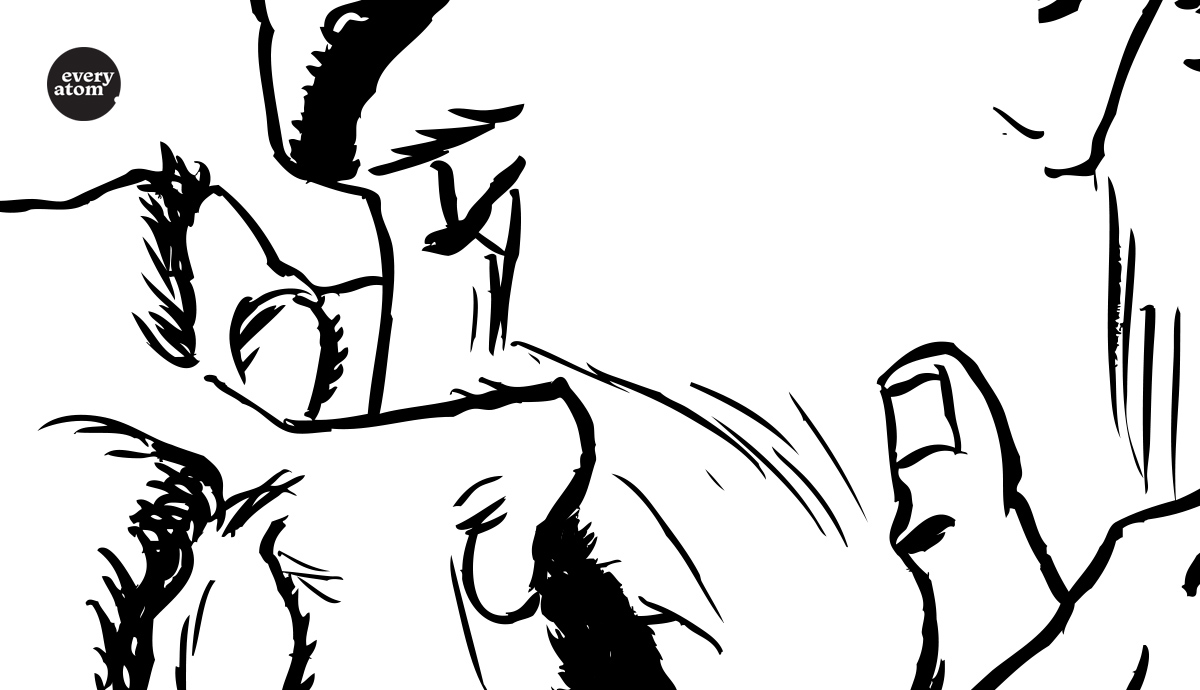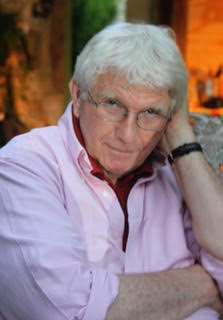Introduction to Every Atom by project curator Brian Clements
In the opening lines of Leaves of Grass, Whitman announces his intention to "go to the bank by the wood and become undisguised and naked" and there find "a few light kisses….a few embraces….a reaching around of arms." He urges us, the reader, to "stop this day and night with me" and promises "you shall possess the origin of all poems."
He then asks a—even the—crucial question.
...comes a loving bedfellow and sleeps at my side all night and close on the peep of the day,
...
Shall I postpone my acceptation and realization and scream at my eyes
Acceptation and realization, but of what?
As I argue in Masculine Landscapes, the origin of Whitman's poetry is derived from, informed by, and founded upon homosexual desire, what Whitman called the love of comrades, for in 1855, of course, the term homosexual had not yet been invented. It is the direction of his desire and the nature of his own sexuality that he realizes and accepts.
If we are in doubt, he tells us.
I mind how we lay in June, such a transparent summer morning;
You settled your head athwart my hips and gently turned over upon me,
And parted the shirt from my bosom-bone, and plunged your tongue to my barestript heart,
And reached till you felt my beard, and reached till you held my feet.
The homoeroticism is clear and from the experience comes realization, acceptance, and revelation: "Swiftly arose and spread around me the peace and knowledge that pass all the argument of the earth."
This section illuminates the homoeroticism of the opening lines of the poem Whitman would later entitle “Song of Myself” and reinvents the "few light kisses...a few embraces...a reaching around of arms" and the night with the loving bedfellow into an intimate and sexually charged reverie that is also revelatory:
This is the press of a bashful hand . . . . this is the float and odor of hair,
This is the touch of my lips to yours . . . . this is the murmur of yearning,
This is the far-off depth and height reflecting my own face,
This is the thoughtful merge of myself and the outlet again
What is "this?" His answer is a question: "Do you guess I have some intricate purpose?" He has. The insistent repetition of "this" defines the love of comrades, love that is both "merge" and the "outlet"—essence and poetic expression—and so indeed the origin of all poems.
All the elements that Whitman makes attendant upon homosexual love in his writings, and that will appear triumphantly in Calamus, are here: the bashful hand and the "yearning" reminiscent of all the yearning for comrades that in Calamus will be only for men; the mirror imagery of reflecting masculine faces "reflecting my own face."
There is also secrecy and silence, a trope Whitman uses to celebrate the intensity of homosexual love. In Calamus 29 he offers the image of a "youth who loves me and whom I love, silently approaching." He shows them "content, happy in being together, speaking little, perhaps not a word." In Calamus 11 the two men lie quietly together in the "stillness in the autumn moonbeams."
And so in these lines. Talking no longer to the cosmos, or to all men, but directly now to the soul, to the reader, to the lover, to us, Whitman has found a willing listener.
In the peaceful moment after the consummation of desire and after the testimony of love, after the "thoughtful merge and outlet" (here not only essence and poetic expression but precisely sexual consummation) and after enfolding the reader ever more securely within the homoerotic text, Whitman confides: "this hour I tell things in confidence, I might not tell everybody, but I will tell you."
The pointed distinction made between "you" and "everybody" singles out the reader from the many comrades as one especially worthy of astonishing confidences, one who having travelled with the poet through initiatory homosexual experience has learned his lesson well and is ready now, guided by the poet, his lover, to discover the origin of all poems.




